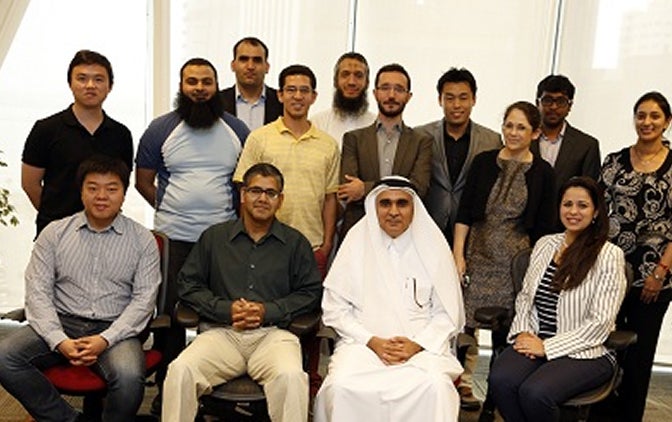Ensuring that the Arabic language flourishes in the digital world is a priority area of QCRI’s research. We are dedicated to promoting the Arabic language in the information age. Some of our current research projects address the challenges related to lack of content and equally important, extracting that content, analyzing and transforming it.

Our Arabic Language Technologies research department is a recognized world leader in the areas of speech recognition, machine translation and question answering. Our focus areas include:
Fully automatic processing and annotating Arabic text including morphological analysis, parts-of-speech tagging, parsing, diacritization, named entity recognition, and spelling correction.
Arabic speech recognition of formal Arabic and dialectal Arabic, also dialect identification and speaker identification.
Machine translation, with focus on translation between Arabic and English. In combination with the speech recognition technology the application areas include translation of broadcast news and real-time translation of lectures.
Multilingual video search in large archives of broadcast news.
Optical character recognition for historic Arabic documents.
Question-answering systems for Arabic and English, which includes deep semantic processing of text, discourse analysis and dialog processing.
The ALT team has also worked on technology for education and on assistive technology, which has resulted in the development of apps - the Jalees Reader e-book reader and the BrailleEasy keyboard for blind and visually impaired people - both of which have been widely adopted.
The ALT department in 2014 organized one of the premier conferences in the field of natural language processing, the Conference on Empirical Methods in Natural Language Processing (EMNLP). Members of the group frequently serve as chairs of major conferences and workshops.
We have collaborated and continue to collaborate with a number of academic institutions and industry partners including Massachusetts Institute of Technology, Carnegie Mellon University, Al Jazeera, Qatar Living, The Boeing Company, and stakeholders including the Supreme Council of Education, Sidra Medicine and the Social and Cultural Center for the Blind.
ALT strives to keep a balance between world-class research and creating impactful technologies. On one hand this means having published more than 200 papers, on the other it has resulted in transferring technology through licensing or the creation of a startup company. Besides the Jalees Reader and BrailleEasy, the following technologies have been commercialized: TweetMogaz (Tweet analysis platform), Farasa (the Arabic NLP toolkit) and QATS (QCRI advanced speech recognition).
